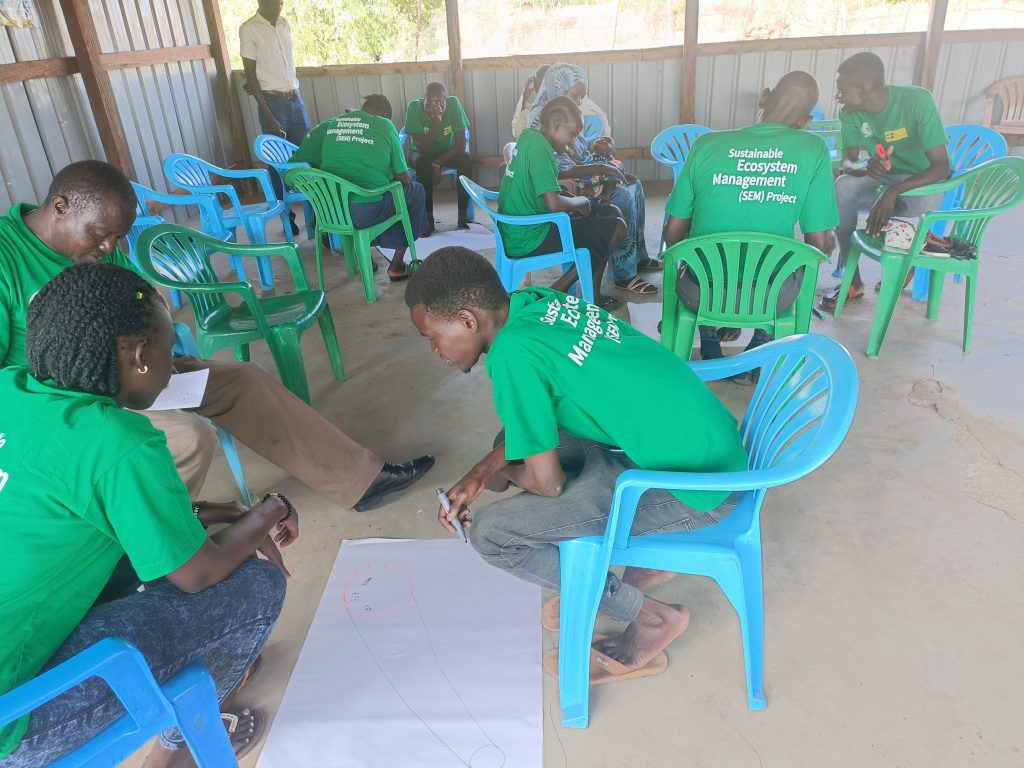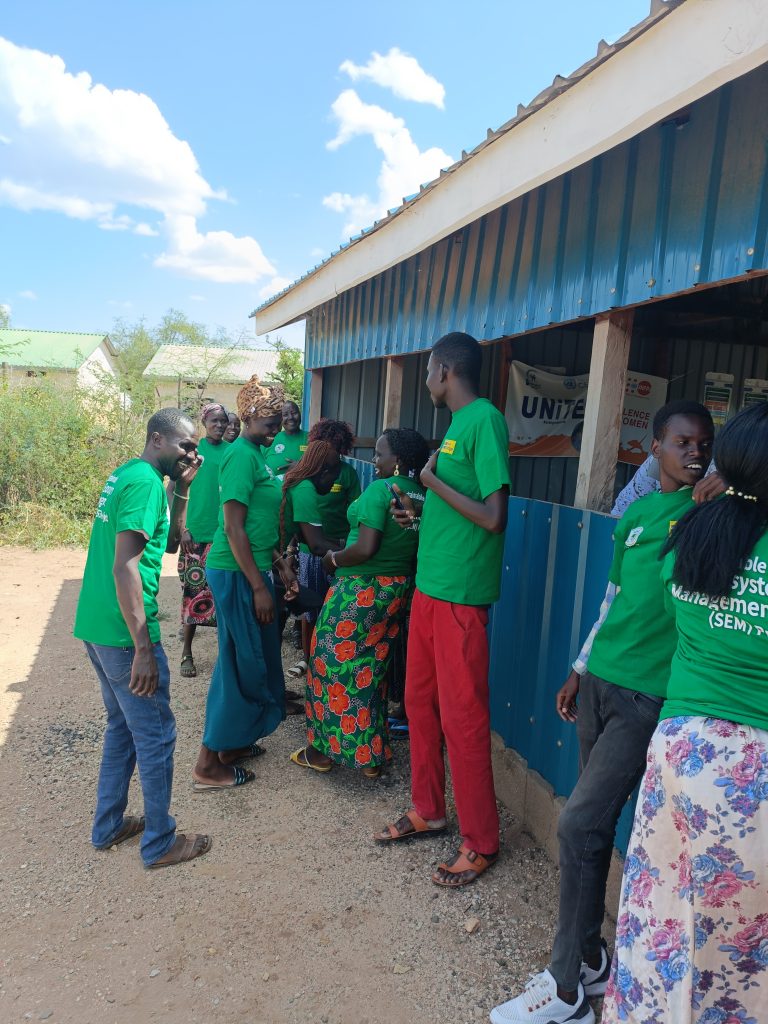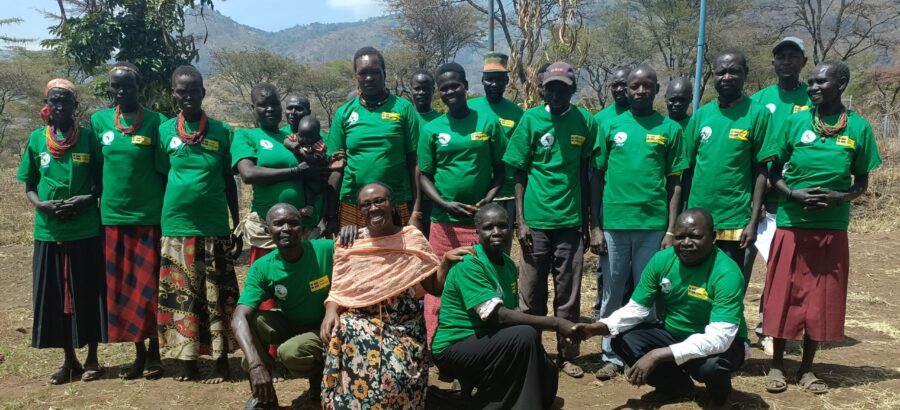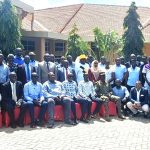Introduction
The gender mainstreaming training was conducted across three selected sites as part of the Sustainable Ecosystem Management Project activities, between 30th January and 15th February 2024. The primary focus of the training was to instill transformative approaches aimed at achieving gender equality within the project’s framework. Gender inclusivity stands as a cornerstone of the project, underscoring the imperative to integrate gender considerations throughout the project cycle.
Training Sessions Overview
Each of the three training sessions comprised 20 to 21 participants, with an average of 10 women per group. The sessions included basic concepts of gender, identifying gender roles, exercises that involved daily activities from dawn to dusk for both men and women separately, listing of assets as well as their access and control, visioning exercises and the gender balance tree. The sessions were held at distinct locations:
1. Akendeyu Training Site
Located approximately one hour’s drive, encompassing a hilly terrain earth road from Kurmuk, which borders Sudan. Kurmuk, situated in the Benishangul Gumuz region, boasts its capital, Asosa, roughly 517Km from Ethiopia’s capital, Addis Ababa. Akendeyu’s landscape is adorned with rolling hills, offering breathtaking views of lush greenery and diverse flora and fauna. Participants were drawn from the Bureau Head office, local community members, and the project focal point.


2. Narus Training Site
Situated in Kapoeta East County, Narus borders Kenya and Uganda, located in the southern part of South Sudan, approximately 360Km from Lodwar Town in Kenya via Nadapal, a shared grazing area of Turkana pastoralists from Kenya and South Sudan. The local community comprises the Toposa pastoral people, whose livelihood revolves around cattle, goats, and sheep, forming the nucleus of their society. The Toposa people are known for their resilience in adapting to the harsh environmental conditions of the region, maintaining a deep connection with their land and livestock.


3. Morungule Training Site
Nestled in Morungule sub-county within Kaabong District, part of Uganda’s Karamoja region, lies approximately 700Km from Kampala. Kaabong District shares borders with South Sudan to the north, Kenya to the East, Moroto District to the southeast, Kotido District to the south, and Karenga District to the west. Morungule is primarily inhabited by two indigenous tribes, the IK and the Dodoth, traditionally hunter-gatherers who engage in small-scale farming and apiculture. The IK people, renowned for their intricate knowledge of the land and its resources, have a profound cultural heritage tied to their environment. The Dodoth, like the IK, have a rich history of living in harmony with nature, utilizing sustainable practices in their livelihood activities.

Training Sessions Experience
With some participants dressed in traditional cultural attire, they exhibited enthusiasm and eagerness to learn, many expressing their first-time experience attending such training sessions. The atmosphere was filled with murmurs, giggles, and laughter as participants embarked on drawing their visions, despite some initial uncertainties. The exercises prompted participants to appreciate their surroundings and explore opportunities, shifting their focus from challenges to proactive planning and goal setting.
Participants’ testimonials echoed newfound insights and aspirations, with one participant acknowledging the significance of strategic planning, while another expressed a desire for literacy, recognizing it as a stepping stone towards education. Engaging in participatory activities such as songs, dance, and presentations fostered a sense of community pride and appreciation for their villages, inhabitants, and the external support received.
Acknowledgment
Participants conveyed heartfelt appreciation to IGAD and the project’s donors-Swedish International Development Cooperation Agency, for providing invaluable training opportunities, unprecedented in their communities. The provision of refreshments amidst the sweltering temperatures further underscored the significance of the training sessions in enhancing community resilience and capacity building.






